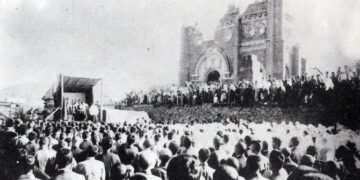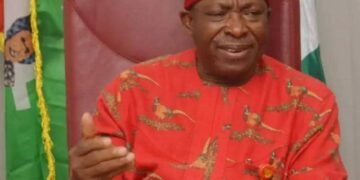By Ononye VC
Nobel laureate, Professor Wole Soyinka, has criticized the nationwide broadcast by President Bola Tinubu, saying it failed to address the brutal crackdown of #EndBadGovernance protesters by security operatives which started a week ago
According to him, the refusal of Mr Tinubu to address the matter in his speech was an endorsement and empowering the security agencies to continue in their high-handedness.
Reports say more than 40 people have been killed across Nigeria, with scores injured.
Soyinka condemned the use of live ammunition to disperse protesters, noting that the protest itself was not unique to Nigeria alone, recounting how similar nationwide protests took place in France as recently as 2022 and 2023.
He described the use of lethal force by security agencies as old fashioned, adding that the protest in the country could degenerate to revolution if their agitations were subdued like it was done.
Soyinka said, “My primary concern, quite predictably, is the continuing deterioration of the state’s seizure of protest management, an area in which the presidential address fell conspicuously short,” the celebrated literature icon said in a statement on Sunday. “Such short-changing of civic deserving, regrettably, goes to arm the security forces in the exercise of impunity and condemns the nation to a seemingly unbreakable cycle of resentment and reprisals.”
“Live bullets as state response to civic protest—that becomes the core issue. Even tear gas remains questionable in most circumstances, certainly an abuse in situations of clearly peaceful protest. Hunger marches constitute a universal SOS, not peculiar to the Nigerian nation,” wrote the nonagenarian.
“Firing live bullets at peaceful protesters who bemoaned hunger in the land, according to Mr Soyinka, symbolises an “ominous retrogression, the kind that precedes upheavals and most likely “revolutions.”
“The serving of bullets where bread is pleaded is ominous retrogression, and we know what that eventually prove, a prelude to far more desperate upheavals, not excluding revolutions”.
- Latest
- Trending











































